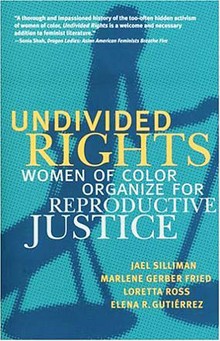Indie, progressive presses target audiences looking for the stories behind the headlines
If you check out prominent displays at major bookstore chains or peruse best-sellers' lists, you will spot Thomas Friedman or Jon Stewart placed on an endcap or hovering in The New York Times' Top 20. Yet, as the corporate publishing world has become as predictable and formulaic as fast food, meaty intellectual books (or more daringly, those with leftist leanings - the blowfish of the book world) have ceded to cotton candy: celebrity tell-alls, diet guides that claim to hold the key to losing 15 pounds in 15 days, and pop-religion tomes that will unveil the secrets of a meaningful life for just $19.95.
| Haymarket Press offers titles that are international in scope. (Photos by Julie Barnett) |
"While there are very difficult, challenging, and seemingly overwhelming battles we're confronted with these days, we're publishing books that have a message of change," says Anthony Arnove, who worked at Boston's South End Press before joining Haymarket, based in Chicago. Indicative of the incestuous world of indie publishing, Arnove also co-edited a book, Voices of a People's History of the United States, with Howard Zinn for Seven Stories Press, a New York City imprint. "At the end of the day, a book can inform you. What really counters cynicism is if you're engaged with other people in the world. Reading a book will only sustain you for so long; what will sustain you is working with other people who see the world the way you do."
| Turn the page A sampling of independent, progressive publishers and their wares |
For example, while Verso's Planet of the Slums, which examines the factors behind the world's ghettos, poses problems, Haymarket's The World Social Forum: Strategies of Resistance, offers solutions. In contrast, last fall, major publishers churned out Bush-hating books faster than you can say Patriot Act, but most of the tomes were little more than exercises in venting.
"We critique dominant culture, but we have to offer an alternative," says Amy Scholder, U.S. editor of Verso, which has offices in New York and London. "It's easier to critique than to come up with a viable plan that others will ascribe to. That's the challenge for the left."
But not the only one. Without an army of sales representatives, large advertising budgets, and cross-country authors' tours, it is difficult for indie presses to penetrate major book chains. Consumers are also buying books at non-traditional outlets, including Costco, Wal-Mart, and airport bookstores, whose giant economies of scale make them equally elusive for the independent press. Moreover, it is unlikely that a Wal-Mart clerk would feel comfortable recommending a history of working-class radicalism or a Costco cashier could direct you to AK Press' documentary on Northwest 'zines.
Instead, the indie press must rely on its small but dedicated retail counterparts - indie booksellers, which are usually staffed by avid readers with broad tastes. Moreover, progressive presses are tapping into online communities of grassroots organizers, political junkies, and information hounds who are primed to read, critique, and blog about their favorite - or most despised - books.
"There are a lot of people right now frustrated with what's being presented in mainstream media and are looking for alternative voices," notes Arnove. "There's actually a very large audience trying to get behind the headlines."
As media consolidation has decreased the number of voices with access to a mainstream audience, so have the publishing conglomerates. A 1999 article in the Multi-National Monitor outlined how German company Bertelsmann, which in 1998 owned Bantam-Doubleday-Dell, bought Random House. By the time the deal was done, Bertelsmann had added Random's subsidiaries to its stable: Knopf, Crown, Ballantine, Fodor's Del Rey, Fawcett, Times, and Pantheon.
Viacom owns Simon & Schuster (as well as CBS, Comedy Central, and MTV, among other media), and Rupert Murdoch's News Corporation, which owns Fox television, magazines, newspapers, and film companies, has expanded into the book world to take over Harper-Collins and its upstart, the successful Regan Books.
So when a writer such as Michael Moore breaks into a mainstream publisher, as he did with Dude Where's My Country? (Warner Books) and Will They Ever Trust Us Again? (Simon & Schuster) it's hard to know whether to curse or applaud.
| Younger readers can be enticed to read history through the graphic-novel form, which mixes drawings and narrative. |
In a March 2005 article, "Sleeping with the enemy," published on Alternet.org, a progressive website for syndicated and original material, Jennifer Nix, editor-at-large for Chelsea Green Publishing, took Moore to task for joining corporate publishers - the very ranks he and other progressive writers vilify. "Why not make money for yourselves and also funnel profits into strengthening independent presses by giving us a chance to work with your names and ideas?" Nix wrote. "No one is asking you to make less money, or to see your books die on the vine due to a lack of publicity, marketing or distribution. Book publishing has always been a crapshoot in corporate hands, and it always will be. Why not align your efforts with nimble, committed folks who are working to reform our media while they sell books?"
Arnove says the battle is more nuanced than corporate versus indie. "If people want bigger distribution and a more mainstream audience, I don't think we should systematically oppose that strategy. If you did, you would give up that ground to the right-wing."
He adds that indie publishers must demonstrate they can reach an audience, and a loyal one at that, that Random House and Simon & Schuster have written off.
"It's harder for us to break an author and it's hard to keep people on board. It's controversial," Scholder says. "When I establish an author, they can go on to a major house and support themselves. But people already established will find readership regardless of who publishes them."
The progressive presses excel at mixing classic and often out-of-print texts such as Leon Trotsky's Literature and Revolution (Haymarket) with topical analyses of President Bush's No Child Left Behind Act (Beacon) and the connection between the corporatization of medicine and deteriorating global health in Sickness and Wealth (South End).
Indie publishers are also attracting a burgeoning youth market: savvy, freethinking activists who enjoy history and narrative in different forms. Published by Verso, Wobblies! A Graphic History of the Industrial Workers of the World, combines text with elaborate drawings to depict the labor struggles of the early and mid-20th century. The graphic novel shows similarities between yesterday's and today's labor issues, while engaging readers who may have been immersed in manga or weaned on comic books.
Dave Zirin's What's My Name, Fool? goes beyond the banal locker room banter into the politics of sports: Muhammad Ali's draft resistance, the Battle of the Sexes in which tennis champion Billie Jean King beat Bobby Riggs, Kobe Bryant's rape trial, and the bluster and graft behind stadium-building.
"We wanted to broaden the appeal to readers who can't get through a sheerly political or economic book," says Julie Fain, managing editor of Haymarket Press. "They think of politics as Washington, D.C. and they don't want anything to do with it. People are invested in the personalities and the play of sports; it's a big part of culture and our lives. But what should be fun and exciting has been twisted."
Unlike mainstream publishers, who measure success in terms of units sold, the progressive press evaluates themselves by feedback from activists and in incremental, but no less meaningful, social change.
"It's not just a sales question, although that's helpful in what people respond to in a bookstore," says Fain. By publishing Civil Rights in Peril: Targeting Arabs and Muslims, she adds, "people under the gun in our society can say I'm glad somebody is there representing our struggle. It's heartening to know people who are affected by an assault on civil rights see that we've published a book and given them confidence."
At Verso, Scholder also considers the qualitative effects of books as important as the quantitative. "Change is the more significant part. We are in the publishing business to add to the richness and diversity and intellectual caliber of public discussion." •
By Lisa Sorg
Third-world feminism and sweatshops
A peek at three South End Press titles
| |
Women of Color Organize for Reproductive Justice
By Jael Silliman, Marlene Gerber Fried, Loretta Ross, Elena R. Gutiérrez
$20, 332 pages
ISBN: 0896087298
As the authors of Undivided Rights explain, the majority of contemporary mainstream pro-choice and abortion-rights organizations fail to understand that, for women of color, reproductive justice goes beyond Roe v. Wade to encompass a variety of issues, from health care and contraception to pollution and poverty. This myopia limits the left's ability to build a sustainable, progressive, multi-issue movement. (In contrast, the right has successfully parlayed the strategy of connecting multiple issues into ever-increasing political power.) Neither preachy nor alarmist, the authors provide introductory chapters on the histories of African-American, Native-American, Asian and Pacific Islander, and Latina women organizing around reproductive rights with well-documented academic research, interviews, and policy analysis. Each chapter is followed by case studies that examine well-known and fledgling groups active today, including strengths, weaknesses, and ideological perspectives. Ultimately, the authors argue, in this era of conservative retrenchment the activists and organizations profiled in Undivided Rights embody a visionary approach necessary to insure reproductive justice for all women.
| |
Immigrant Women Workers Take On The Global Factory
By Miriam Ching Yoon Louie
$18, 310 pages
ISBN: 0896086380
In Sweatshop Workers, Miriam Ching Yoon Louie examines the experiences of Chinese, Korean, and Mexican immigrant women garment workers, their extended families, and the activist organizations and movements they lead, from Oakland, New York, and Los Angeles to El Paso and San Antonio. In doing so, she has created a combination of investigative reporting, academic analysis, documentary case studies, and oral narrative from the women themselves. Louie knows from firsthand experience of the struggles she documents from family members who worked in the garment industry as well as her present involvement with the Women of Color Resource Center. Additionally, she is the former national media director of Asian Immigrant Women Advocates and San Antonio-based Fuerza Unida, which have entered their 15th year of advocacy for Chicana and Mexicana workers.
| |
Essays on Latin America and the Caribbean
Edited by Jennifer Browdy de Hernandez
$18, 242 pages
ISBN: 0896087085
Women Writing Resistance, an anthology, contains selections of prose and poetry, testimonios and recuerdos from a number of well-respected, radical mujeres across las americas. Editor Browdy de Hernandez has selected a diverse, diasporic, multigenerational roster of contributors who deserve to be household names, including: Nobel Peace Prize-winner Rigoberta Menchú; Chicana lesbian poet playwright Cherríe Moraga; Chilean author Marjorie Agosín; and the late Gloria Anzaldua. Some, such as Jewish-Cubana anthropologist Ruth Behar, are academics who challenge the confines of the academy through their personal narratives. Several are exiled from their countries of origin; for them, their awareness of political repression and global imperialism came hand in hand. Despite their differences the Latina, Latin-American, Caribbean-origin, and white women in this collection recognize the importance of coalition-building and collective action in fashioning a culture of resistance, through word and deed, to the multifaceted forms of oppression. •























